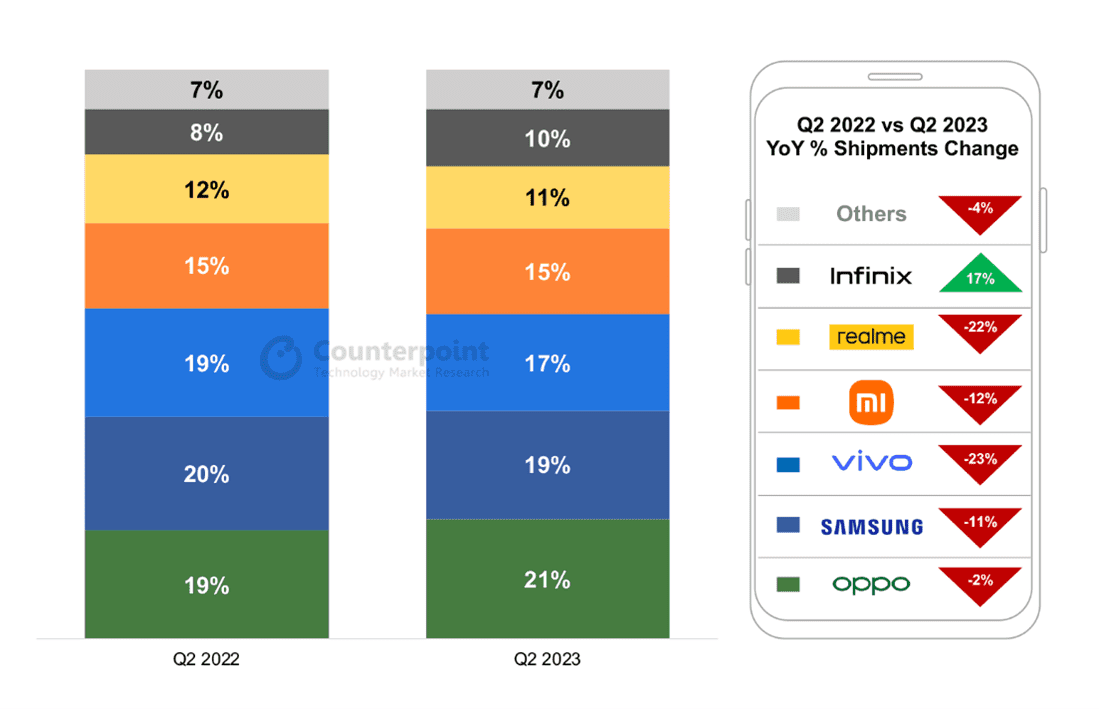Indonesia saw a 10% YoY decline in smartphone shipments as macroeconomic headwinds continue to hit hard on demands. All the top OEMs such as Samsung, Oppo, Vivo, Xiaomi and Realme witnessed a decline except for Infinix which recorded an impressive 17% year-over-year (YoY) growth.
According to Counterpoint’s Indonesia Smartphone Tracker, the Eid al-Fitr festivities in April witnessed a lower shopping activity than last year, with promotions such as price discounts, bundled offers and instalment and trade-in schemes failing to woo consumers’ interest.
Instead, consumers’ purchasing focus shifted to adjusting for elevated costs of items like fuel, household products and services used during the festive season, such as travel.
Infinix’s Q2 2023 Winning Strategy in Indonesia
One of the notable sparks behind Infinix’s jump in shipment in the Southeast Asian country came from the newly launched Note 30 series, HOT 30 series, and the SMART 7 series to cater for the diverse needs of the market, with a focus on a price range below $200.
Also Read: Infinix Gains Big in a Declining Southeast Asia Smartphone Market
The Note 30 series comes equipped with cutting-edge features that appeal to users who want superior performance, while the HOT 30 series attends to consumers who want a quality but affordable device, and then there’s the cost-effective SMART 7 series which addresses the demands of consumers who seek a balance between performance and budget consciousness.

Other than its product offering, the Transsion-owned company was also aggressive with its marketing activities to increase brand awareness and visibility. This aggressive approach paid off with a remarkable 17% YoY growth as Infinix made an indelible mark on consumers’ minds, translating into increased brand recognition and consideration.
Meanwhile, OPPO leads the market with a 21% share, all thanks to its low-end models in the A17 series and then the Reno8 T series and Find N2 Flip. The smartphone maker too continued its aggressive marketing campaign in the ever-competitive market.
Other OEMs such as Samsung, Vivo and Realme saw a decline in smartphone sales. As for Samsung, the Korean-based smartphone maker managed to stay afloat with the Galaxy A04 series contributing to its volumes, while preventing a further fall in shipment share to just 1% point.
Xiaomi too saw a decline in shipments, though it softened from 47% YoY in Q2 2022 to 12% YoY in 2023. The Chinese brand was able to cool off steam with new product launches and discount offer schemes.





